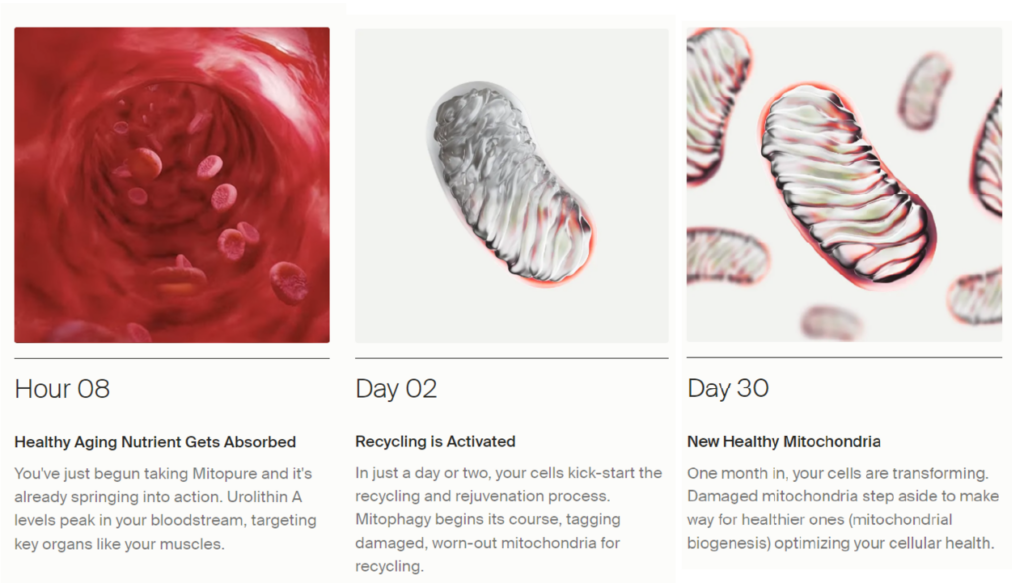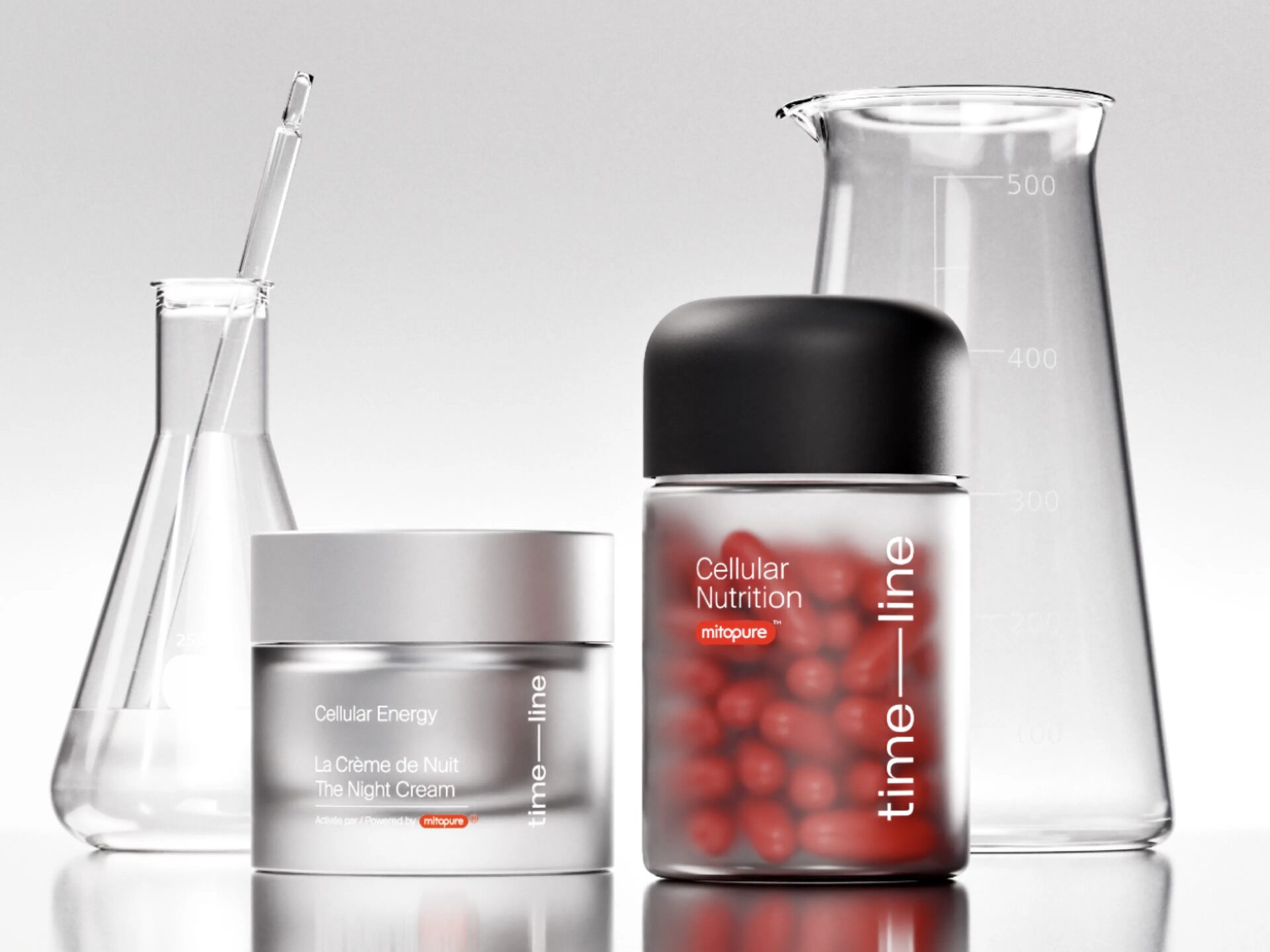Inflammation is widely recognized as a key driver of aging. Our modern lifestyles often place us in an age-associated, low-grade, chronic inflammatory state that promotes steady tissue damage. Let’s refer to this process as “inflammaging.” The issue here is that chronic inflammation often contributes to the development of arthritis, cardiovascular disease, and cognitive impairments. Our efforts to maintain an active and healthy lifestyle need to include ways to address the inflammation in our bodies.
The Culprit: Cellular Decline
At the heart of chronic inflammation lies the gradual deterioration of cellular health. We see this particularly within our mitochondria, the power behind our cells. Throughout our lives, these cell structures lose their efficiency, leading to a boost in harmful free radicals. This creates a state of oxidative stress — triggering an inflammatory response. Not ideal for healthy aging.
The Solution: Lifestyle Tweaks and Urolithin A
There are several ways to combat inflammation — mostly around our lifestyle. Specifically, we need to look at what we put into our body, how we move, our reaction to stress, and our sleep pattern. Here are 5 impactful (and relatively easy) options to slow inflammation and lessen the stress on our cells:
- Dietary Adjustments: Look for ways to incorporate anti-inflammatory-rich fruits, vegetables, whole grains, lean proteins (like fish and poultry), healthy fats (such as those found in olive oil, avocados, and nuts), and spices like turmeric and ginger into your meal planning. Minimize your consumption of ultra-processed foods, sugary drinks, and alcohol.
- Regular Exercise: Engage in regular physical activity, such as walking, jogging, cycling, or swimming. Exercise helps reduce inflammation by promoting circulation, improving immune function, and supporting our overall health.
- Stress Management: Practice stress-reducing techniques such as meditation, breathing exercises, or yoga. Chronic stress can contribute to inflammation, so finding effective ways to manage your stress is beneficial.
- Adequate Sleep: Ensure you get enough quality sleep each night, which is between 7-9 hours for most adults. Poor sleep can lead to increased inflammation and a weakened immune system.
- Supplement your efforts with Urolithin A. As a naturally occurring compound derived from the metabolism of gut microbiota, the pharmacological effects include anti-inflammatory, antioxidant, and anti-aging properties.
Urolithin A plays an important role in rejuvenating our aging mitochondria, and absorbing enough of this compound is very hard to do with food alone. This is where Timeline’s pure Urolithin A supplement (Mitopure) can help — by inducing mitophagy and stimulating the generation of healthy mitochondria. This gives our cells the ability to better handle the stress of chronic inflammation.

The Outcome: Enhanced Health and Vitality
Inflammaging is a complex process; and to resolve what seems complex, we should rely on what is essential: a simple yet holistic path that includes lifestyle changes supported by science. The pure Urolithin A in Mitopure allows us to proactively address the root cause of inflammation and pave the way for its reduction. For any of you fellow science lovers, you can read all about the research here — you may have already heard these inflammaging studies are cellularly fascinating.
Timeline has a special discount for our readers. Use code “AGEIST” at checkout and receive 10% off any of their line of products.


Wow -$200 a bottle. Not a cheap try to see if it works. Even with the 10 percent discount.
Agreed, I had a bit of sticker shock as well. (And I purchased myself with the AGEIST code) I took a look at why – pure urolithin a is not easy to extract from natural sources – and the concentration is pretty low in those natural sources. Add to that, the ongoing research and development around the isolation and purification process. These are a few of the reasons why our scientific board support the product (and personally take it).
And human data are sparse: https://www.timeline.com/studies
Thank you for sharing the link to Timeline’s studies – that is very helpful. The number of studies on humans will vary depending on the specific area of focus: such as mitochondrial health, aging-related conditions, athletic performance, and metabolic health. If there is a specific area you are curious about, I would suggest looking at PubMed or the National Institute of Health where you can conduct a specific search.